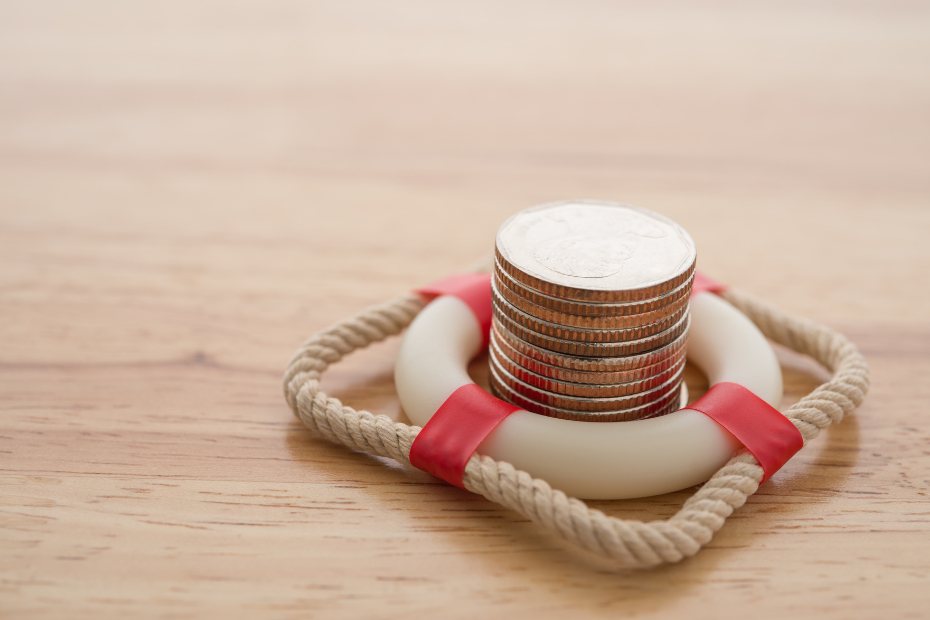Published July 14, 2023 • 4 Min Read
A loss of a job can take its toll both emotionally and financially. And if you don’t have other income or savings to fall back on, money can quickly become harder to manage. While covering your day-to-day living expenses comes first, managing debt may be second if you have a mortgage, credit cards, student loans or other debts to pay.
Having a plan for managing debt during a job loss can make it easier to stay afloat if you find yourself temporarily unemployed.
5 smart tips for managing debt after a job loss
Losing a job can be overwhelming, and you may feel you have little control over the situation. If that’s the case, take a deep breath and consider what you can do to stay on top of your debt.
1. Prioritize payments
When you have different types of debt to repay and a job loss shrinks your income, making the most of your resources is important.
Secured debts — the kind you back with an asset — come first since missing those payments could result in the loss of your collateral. Examples of secured debts include mortgage loans, home equity loans, and car payments.
Unsecured debts, meanwhile, don’t put you at risk of losing any collateral. That doesn’t mean you can skip those payments altogether, but you may cut back to paying just the minimum due.
2. Seek debt assistance or relief
If you’re having difficulty managing debt through a job loss, there are different ways to get help. Depending on the kind of debts you have, the options might include:
-
Asking your credit card company to temporarily lower your interest rate or reduce fees
-
Working out a debt repayment or debt management plan with the help of a reputable consumer credit counselling organization
-
Negotiating a settlement of past due debts either on your own or through a Consumer Proposal
-
Filing for bankruptcy protection
Talking to a certified credit counsellor or a Licensed Insolvency Trustee can help you weigh your options. You may also want to explore government assistance programs for debt. For instance, if you’re having a hard time managing student loans, you may qualify for repayment assistance from the Canadian government.
3. Reduce household expenses
After a job loss, many people reduce spending as much as possible to help make it easier to manage debt payments and avoid falling behind. Here are a few common tips for reducing expenses during a job loss.
-
Create a solid budget if you haven’t already
-
Contact your internet, cable, and phone providers to ask about reducing your plan features or negotiating a discount for bundling services
-
Cancel any unwanted or unused subscriptions or streaming services
-
Learn to meal plan and shop grocery store sales strategically to save money on food
-
Save on water bills by: lowering your hot water temperature, setting a timer for the shower, and only running full loads in the dishwasher and laundry
-
Set your thermostat higher in summer or lower in winter to save on energy use
4. Apply for EI benefits
You can apply for Employment Insurance (EI) benefits if a job loss happens through no fault of your own. In fact, Service Canada encourages workers who have lost their jobs to apply for benefits as quickly as possible to avoid missing their eligibility window.
You can apply online, and if approved, you should begin receiving benefits within 30 days. Unemployment benefits may not be enough to cover all your expenses, but they could help with basic living expenses or debt repayment until you land a new job.
There’s one thing to know, however. You can’t receive EI benefits and severance pay at the same time. So it may be worth contacting your former employer to determine if severance payments will come your way before applying for unemployment benefits.
5. Avoid new debt if possible
It may be tempting to use credit cards or a personal line of credit to cover expenses through a job loss if you don’t have emergency savings to rely on and you’re not collecting EI benefits yet. However, creating new debt may lead to financial issues later when it’s time to pay it back.
If you’re considering a credit card or loan to pay the bills, it’s important to understand the interest rate and fees you might pay. A credit card or line of credit with a low APR and minimal fees might be your best bet.
Using an online budgeting tool to break down spending can help you identify areas where you might be able to cut back. Putting all of the money tips outlined above to work can make it easier to get through a job loss without adding to your debt load.
This article is intended as general information only and is not to be relied upon as constituting legal, financial or other professional advice. A professional advisor should be consulted regarding your specific situation. Information presented is believed to be factual and up-to-date but we do not guarantee its accuracy and it should not be regarded as a complete analysis of the subjects discussed. All expressions of opinion reflect the judgment of the authors as of the date of publication and are subject to change. No endorsement of any third parties or their advice, opinions, information, products or services is expressly given or implied by Royal Bank of Canada or any of its affiliates.
Share This Article






